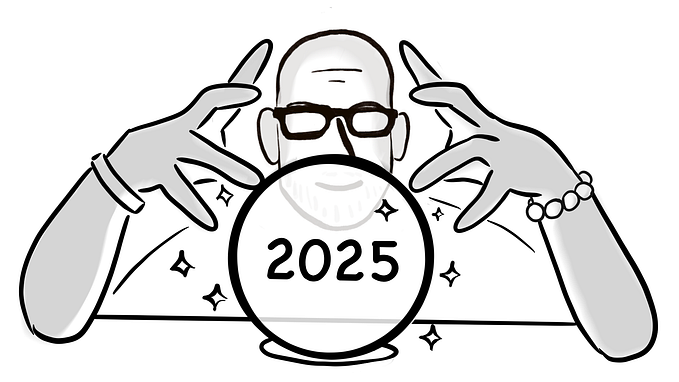Why Net Neutrality Isn’t Changing as Much as You Think
FCC’s Rules Were About Enforcing Promises Anyway, as FTC, States Will Do
Suppose Hillary had won. Her FCC Chairman certainly would have left in place the FCC’s net neutrality rules — and the broad claims of authority behind them. On paper, the Democrats’ approach to policing net neutrality would have been radically different than Ajit Pai’s. The Republican Chairman today circulated a proposal to disclaim broad power over the Internet and, with that, repeal all of the net neutrality rules except one: the transparency rule. But in practice, the two approaches actually aren’t all that different: either way, policing net neutrality means:
- Requiring broadband companies to make clear disclosures to consumers
- Enforcing those disclosures and
- Regardless of what companies say, punishing broadband practices that harm consumers or competition.
To understand why less is changing than you think, you have to read the two decisions of the D.C. Circuit upholding the FCC’s rules. In both cases, the majority (Democratic appointees) handed the FCC a great victory — with a subtle but critical caveat: after all the sturm und drang about needing to prevent “death of the Internet as we know it” with the strongest possible rules, it turns out those rules are essentially optional anyway. More precisely, the court twice held that the FCC can treat broadband providers as common carriers only if broadband providers “hold themselves out as neutral, indiscriminate conduits.” This is essentially what the FCC itself had said in both the 2010 and 2015 Open Internet Orders, but the true importance of this caveat didn’t become clear until this year’s US Telecom decision.
Writing for the full D.C. Circuit, Judge Srinivasan, joined by Judge Tatel (who had written both the 2016 and 2014 decisions of three-judge panels), explained:
the chief reason the net neutrality rule raises no First Amendment problem is not that ISPs have lost their First Amendment rights by refraining from actively filtering the internet content they transmit to subscribers. The lack of a viable First Amendment claim stems from what ISPs have (or have not) said, not from what they have (or have not) done. When a broadband provider holds itself out as giving customers neutral, indiscriminate access to web content of their own choosing, the First Amendment poses no obstacle to holding the provider to its representation
By the same token, broadband providers could “may opt to exercise editorial discretion — for instance, by offering access only to a limited segment of websites specifically catered to certain content — would not offer a standardized service that can reach ‘substantially all’ endpoints.” Thus, the FCC’s rules really all boiled down to requiring transparency and enforcing those promise. As Srinivasan said:
An ISP would need to make adequately clear its intention to provide “edited services” of that kind, so as to avoid giving consumers a mistaken impression that they would enjoy indiscriminate “access to all content available on the Internet, without the editorial intervention of their broadband provider.” It would not be enough under the Order, for instance, for “consumer permission” to be “buried in a service plan — the threats of consumer deception and confusion are simply too great.”
Pai is keeping that transparency rule — which doesn’t require either of the grandiose claims of legal authority made by the FCC in 2010 and 2016. (In 2014, Judge Silberman argued that the FCC could ground that rule in an uncontroversial section of the Communications Act — and Pai is proposing to do just that.) So step one of policing net neutrality won’t change at at all. Here’s what Pai’s new order says on this point:
as urged by the prior Commission when defending the Title II Order, and as confirmed in the concurrence in the denial of rehearing en banc by the two judges in the majority in USTelecom, the Title II Order allows ISPs to offer curated services, which would allow ISPs to escape the reach of the Title II Order and to filter content on viewpoint grounds. In practice, the Title II Order “deregulates curated Internet access relative to conventional Internet access [and] may induce ISPs to filter content more often,” rendering the no-blocking and no-throttling rules ineffectual as long as an ISP disclosed it was offering curated services. [quoting Brent Skorup] The curated services exemption arising from the Title II Order confirms our judgment that transparency requirements, rather than conduct rules, are the most effective means of preserving Internet openness.
So what about step two: actually holding companies to those promises? The cops on the beat will change and there won’t be formal rules, but the Federal Trade Commission, Department of Justice and state attorneys general will all be able to do essentially the same two things the FCC would have: making sure consumers get what they’re promised. They’ll have an easy of doing that under well established deception authority in the FTC Act and state baby FTC acts. Importantly, and contrary to what most people in DC seem to think, proving deception doesn’t require any elaborate showing of injury, just that customers didn’t get what they were promised.
And then there’s step three: protecting consumers from truly harmful or anti-competitive practices. The FCC would have done that through rules. The FTC, DOJ and states will do it through laws of general applicability: the antitrust laws that all three can enforce. In addition, the FTC and state AGs can prosecute as “unfair” any practices that harm consumers without countervailing benefit.
Yes, this case-by-case approach will leave greater room for experimentation on the edges, because the government will have to prove its case. But that’s the American way: that which is not forbidden is permitted. It’s why, in most states, you don’t need a sign saying you can turn right at red lights. And it’s that kind of permissionless innovation that’s made the Internet great.
In short, Pai’s proposal isn’t “killing net neutrality,” it’s just ensuring that we police net neutrality concerns without the baggage of the FCC’s claims of “extravagant statutory power.”











